Related: Travis Kelce Isn’t the Only Taylor Swift Fan in the NFL: Football Swifties
Advertisement
Getty Images (3)
Many professional athletes do not agree with the “dads, Brads and Chads” hating on Taylor Swift’s attendance at NFL games.
Swift has been a fixture at boyfriend Travis Kelce’s Kansas City Chiefs games since September 2023, with the NFL occasionally showing her on the Jumbotron and on the broadcast when Kelce has a big play. The coverage outraged some diehard football supporters, lamenting that Swift is prioritized onscreen over the actual game. Swift and Kelce, meanwhile, haven’t let the haters faze them (and reports have confirmed the league has toned down how often they show the pop star).
“I don’t know how they know what suite I’m in. There’s a camera, like, a half-mile away, and you don’t know where it is, and you have no idea when the camera is putting you in the broadcast, so I don’t know if I’m being shown 17 times or once,” Swift told TIME in a December 2023 profile. “I’m just there to support Travis. I have no awareness of if I’m being shown too much and pissing off a few dads, Brads and Chads.”
Kelce later marveled at how his “amazing” girlfriend handled the backlash. “I’ll say this, they showed Taylor at the game and you don’t see an entire home team fanbase go insane for somebody wearing the opposite team’s colors,” he said during an episode of his “New Heights” podcast that month. “Just shows you how amazing that girl is.”
He added at the time, “They went absolutely insane when they showed Taylor on the screen. … Might have been a few Brads and Chads that were booing, but for the most part, everybody was f—king screaming at Taylor.”
Swift and Kelce, a tight end for the Chiefs since 2013, aren’t the only ones in favor of her game day attendance. Keep scrolling to see what the stars have said in defense of Swift joining Chiefs Kingdom:
Mahomes, the Chiefs starting quarterback, is a close friend of Kelce’s and doesn’t see Swift as a game day distraction.
“I don’t think it feels any different. People see the whole Taylor Swift and Travis [thing] and they make it a huge deal because it is a huge deal,” Mahomes said in an ESPN sit-down in November 2023. “I think it becomes a bigger deal to the fanbases than it does to the guys who are actually in the building. … I think you can understand why it’s not become a distraction or anything like that because everybody cares about being the best they can be every day.”
Travis’ older brother, who plays for the Philadelphia Eagles, is all-in on the NFL’s coverage of Swift since she’s an “unbelievable role model.”
“The attention’s there because the audience wants to see it. If people didn’t want to see it, they wouldn’t be showing it, I know that,” Jason quipped during an interview with Cincinnati’s ABC affiliate WCPO 9 in February 2024. “She’s a world star and the quintessential artist right now in the world.”
He continued: “[She’s] immensely talented, an unbelievable role model for young women across the globe, so I think that the NFL would probably be foolish not to show her and show her be a role model for all the young girls out there.”
Ezra Shaw/Getty Images
The retired football star confessed to Us Weekly that he “can’t understand” why football fans have been “so upset” about Swift supporting Kelce’s career.
“I mean, they show celebrities at games all the time. Don’t act like we don’t show male celebrities at games all the time,” he exclusively told Us in January 2024. “I don’t really understand why it’s caused such an uproar. I mean, she’s literally there supporting her significant other, and that’s what you should do as a significant other.”
“They lose a game, [some will say] it’s because of her. And they win a game, [some will ask], ‘Why [are] the cameras on her?’ But I like it,” Sharpe, a retired tight end, exclusively told Us in January 2024. “I like it for him. I like her being at the game. She brings a different set of eyeballs to the game. There are a lot of young girls and women that are watching the NFL football that could care less about that. And so the NFL’s, like, ‘Hey, if we get new eyeballs, we get new customers, we’re onboard.’”
The retired Miami Dolphins quarterback told Us in January 2024 that Swift “hasn’t affected any games” from her perch in the stadium crowd.
“She might as well have fun and enjoy it while she’s dating one of the stars in the NFL. And what’s wrong with that? Nothing,” Marino quipped.
Minnesota Vikings QB Kirk Cousins also sees Swift’s presence as a “positive for the league” despite certain fans booing her whenever the Chiefs lost a game.
“I mean, fans are going to be fans [and] maybe they blame her,” Cousins told Us in January 2024. “I don’t know if the blame is well placed, but I think a lot of the games she’s attended, they played really well and they won.”
Megan Briggs/Getty Images
“If you’re screaming at Taylor Swift saying she ruined [football], you’re just a loser,” the retired NBA All Star quipped during a February 2024 episode of his King Charles show. “You’re just a loser or a jackass. You’re either A or B. You’re one of the two.”
“They’ve got really, really something going and we enjoy having her at our games,” the Chiefs linebacker said on the “Zach Gelb Show” in January 2024. “It brings a lot of energy and a lot of fun to our fans. And so that’s good for business, good for football and good for the NFL.”
The retired Chiefs running back stressed to TMZ Sports in December 2023 that Swift has “nothing to do” with the team’s game record.
“Taylor Swift is not on the field. Travis is playing like he always plays,” Okoye said. “Teams are just doubling up on him now knowing that our receivers are dropping the balls. When you’re doing bad, people have to find excuses and they have to point fingers. Especially those who don’t like the situation about Taylor Swift and Travis Kelce.”
After news broke that Kelce was planning to spend his November 2023 bye week in Argentina to see Swift on her Eras Tour, the former Giants quarterback defended the vacation.
“I think the bye week is a great time to get away from football and I think that’s the idea,” Manning told People at the time. “It is the time to rest the body, rest the mind a little bit, recharge yourself to get ready for that second half of the season.”
He continued, “I think for him to travel, there’s nothing wrong with traveling, going somewhere. Hey, if he wants to go and support his girlfriend and see her play a concert, I’ve got no problem with that.”
The retired linebacker dismissed the backlash during a February 2024 interview with Page Six.
“I’m not down with the negative energy. I’m loving all of what they’re doing. I’m here for it,” Banks said. “[Their relationship] is one of the great moments of this NFL season and anybody that’s got a problem with it, they need to cope harder. If you can show my good friend Spike Lee at every Knicks game and every opponent’s game, then why not Taylor?”
Justin Ford/Getty Images
The sportscaster has become one of the most vocal members of Tayvis Nation (the fan-appointed nickname for Swift and Kelce’s supporters) — and frequently defends the Grammy winner’s game day outings.
“I have to take a moment to come to the defense of Taylor Swift,” Smith said during a January 2024 ESPN broadcast. “Everybody’s sitting up there and acting like she’s some kind of impediment. … She’s going to support her dude. To show up at a football game and the cameras are on her — that ain’t her fault! And excuse me, by the way, she went to the games after the concerts. It’s not like she used the games to bump up the concerts.”
Cowherd went on an impassioned rant about the “really weird, lonely, insecure men” hating on Swift’s NFL presence during a January 2024 episode of his The Herd radio show.
“The fact that a pop star — the world’s biggest pop star — [is] dating a star tight end, who had one of his greatest games ever, and the network puts them on the air briefly, that bothers you. What does that say about your life?” Cowherd, a sportscaster, quipped. “Did you know, statistically, in a three-hour NFL broadcast … just 18 minutes are actual football, and we have the data, you don’t turn away. There’s coach cutaways, they show fans in Buffalo on fire, commercials, reviews. [It’s] 18 minutes of real football, [which] for the record [is] about the length of five Taylor Swift songs.”
Steven Ferdman/Getty Images
Duncan, an ESPN commentator, also called out the double standard during a December 2023 episode of her“Elle Duncan Show” podcast.
“It is not her fault. I am so tired of us doing this. And we do this to women,” Duncan lamented. “It’s Jessica Simpson’s fault [that] Tony Romo spit the bit. Remember Kim Kardashian and Miles Austin for a hot second? It’s her fault. It’s always the woman’s fault for ‘distracting.’ Nobody’s asking if Travis Kelce is distracting her from a world tour. No one’s saying that. And I don’t like that.”
Getty Images (3) Many professional athletes do not agree with the “dads, Brads and Chads” hating on Taylor Swift’s attendance at NFL games. Swift has been a fixture at boyfriend Travis Kelce’s Kansas City Chiefs games since September 2023, with the NFL occasionally showing her on the Jumbotron and on the broadcast when Kelce has
Us Weekly Read More

Jeffrey Epstein’s money did more than buy private jets and legal leverage. It flowed into the same ecosystem that decides which artists get pushed to the front, which research gets labeled “cutting edge,” and which stories about race and power are treated as respectable debate instead of hate speech. That doesn’t mean he sat in a control room programming playlists. It means his worldview seeped into institutions that already shape what we hear, see, and believe.
The fallout around Casey Wasserman is a vivid example of how this works. Wasserman built a powerhouse talent and marketing agency that controls a major slice of sports, entertainment, and the global touring business. When the Epstein files revealed friendly, flirtatious exchanges between Wasserman and Ghislaine Maxwell, and documented his ties to Epstein’s circle, artists and staff began to question whose money and relationships were quietly underwriting their careers.

That doesn’t prove Epstein “created” any particular star. But it shows that a man deeply entangled with Epstein was sitting at a choke point: deciding which artists get representation, which tours get resources, which festivals and campaigns happen. In an industry built on access and favor, proximity to someone like Epstein is not just gossip; it signals which values are tolerated at the top.
When a gatekeeper with that history sits between artists and the public, “the industry” stops being an abstract machine and starts looking like a web of human choices — choices that, for years, were made in rooms where Epstein’s name wasn’t considered a disqualifier.

Epstein’s interest in culture didn’t end with celebrity selfies. He was obsessed with the science of brains, intelligence, and behavior — and that’s where his money begins to overlap with how audiences are modeled and, eventually, how algorithms are trained.
He cultivated relationships with scientists at elite universities and funded research into genomics, cognition, and brain development. In one high‑profile case, a UCLA professor specializing in music and the brain corresponded with Epstein for years and accepted funding for an institute focused on how music affects neural circuits. On its face, that looks like straightforward philanthropy. Put it next to his email trail and a different pattern appears.
Epstein’s correspondence shows him pushing eugenics and “race science” again and again — arguing that genetic differences explain test score gaps between Black and white people, promoting the idea of editing human beings under the euphemism of “genetic altruism,” and surrounding himself with thinkers who entertained those frames. One researcher in his orbit described Black children as biologically better suited to running and hunting than to abstract thinking.
So you have a financier who is:
None of that proves a specific piece of music research turned into a specific Spotify recommendation. But it does show how his ideology was given time, money, and legitimacy in the very spaces that define what counts as serious knowledge about human minds.

There is another layer that is easier to see: what enters the knowledge base that machines learn from.
Fringe researchers recently misused a large U.S. study of children’s genetics and brain development to publish papers claiming racial hierarchies in IQ and tying Black people’s economic outcomes to supposed genetic deficits. Those papers then showed up as sources in answers from large AI systems when users asked about race and intelligence. Even after mainstream scientists criticized the work, it had already entered both the academic record and the training data of systems that help generate and rank content.
Epstein did not write those specific papers, but he funded the kind of people and projects that keep race‑IQ discourse alive inside elite spaces. Once that thinking is in the mix, recommendation engines and search systems don’t have to be explicitly racist to reproduce it. They simply mirror what’s in their training data and what has been treated as “serious” research.
Zoomed out, the pipeline looks less like a neat conspiracy and more like an ecosystem:
The algorithm deciding what you see next is standing downstream from all of this.
Epstein’s contact lists are full of directors, actors, musicians, authors, and public intellectuals. Many now insist they had no idea what he was doing. Some probably didn’t; others clearly chose not to ask. From Epstein’s perspective, the value of those relationships is obvious.
Being seen in orbit around beloved artists and cultural figures created a reputational firewall. If the public repeatedly saw him photographed with geniuses, Oscar winners, and hit‑makers, their brains filed him under “eccentric patron” rather than “dangerous predator.”
That softens the landing for his ideas, too. Race science sounds less toxic when it’s discussed over dinner at a university‑backed salon or exchanged in emails with a famous thinker.
The more oxygen is spent on the celebrity angle — who flew on which plane, who sat at which dinner — the less attention is left for what may matter more in the long run: the way his money and ideology were welcomed by institutions that shape culture and knowledge.

The point is not to claim that Jeffrey Epstein was secretly programming your TikTok feed or hand‑picking your favorite rapper. The deeper question is what happens when a man with his worldview is allowed to invest in the people and institutions that decide:
If your media diet feels saturated with certain kinds of Black representation — hyper‑visible in music and sports, under‑represented in positions of uncontested authority — while “objective” science quietly debates Black intelligence, that’s not random drift. It’s the outcome of centuries of narrative work that men like Epstein bought into and helped sustain.
No one can draw a straight, provable line from his bank account to a specific song or recommendation. But the lines he did draw — to elite agencies, to brain and music research, to race‑obsessed science networks — are enough to show this: his money was not only paying for crimes in private. It was also buying him a seat at the tables where culture and knowledge are made, where the stories about who to love and who to fear get quietly agreed upon.

For anyone making culture inside this system, that’s the uncomfortable part: this isn’t just a story about “them.” It’s also a story about you.
Filmmakers, showrunners, musicians, actors, and writers all sit at points where money, narrative, and visibility intersect. You rarely control where the capital ultimately comes from, but you do control what you validate, what you reproduce, and what you challenge.
Questions worth carrying into every room:
If wealth like Epstein’s can quietly seep into agencies, labs, and institutions that decide what gets made and amplified, then the stories you choose to tell — and refuse to tell — become one of the few levers of resistance inside that machine. You may not control every funding source, but you can decide whether your work reinforces a world where Black people are data points and aesthetics, or one where they are subjects, authors, and owners.
The industry will always have its “gatekeepers.” The open question is whether creatives accept that role as fixed, or start behaving like counter‑programmers: naming the patterns, refusing easy archetypes, and building alternative pathways, platforms, and partnerships wherever possible. In a landscape where money has long been used to decide what to love and who to fear, your choices about whose stories get light are not just artistic decisions. They are acts of power.

That’s the realization hanging over anyone picking up a camera right now. You didn’t sign up to be a forensic analyst of flight logs, sealed documents, or “unverified tips.” You wanted to tell stories. But your audience lives in a world where every new leak, every exposed celebrity, every dead‑end investigation feeds into one blunt conclusion:
Nobody at the top is clean. And nobody in charge is really coming to save us.
If you’re still making films in this moment, the question isn’t whether you’ll respond to that. You already are, whether you intend to or not. The real question is: will your work help people move, or help them go numb?
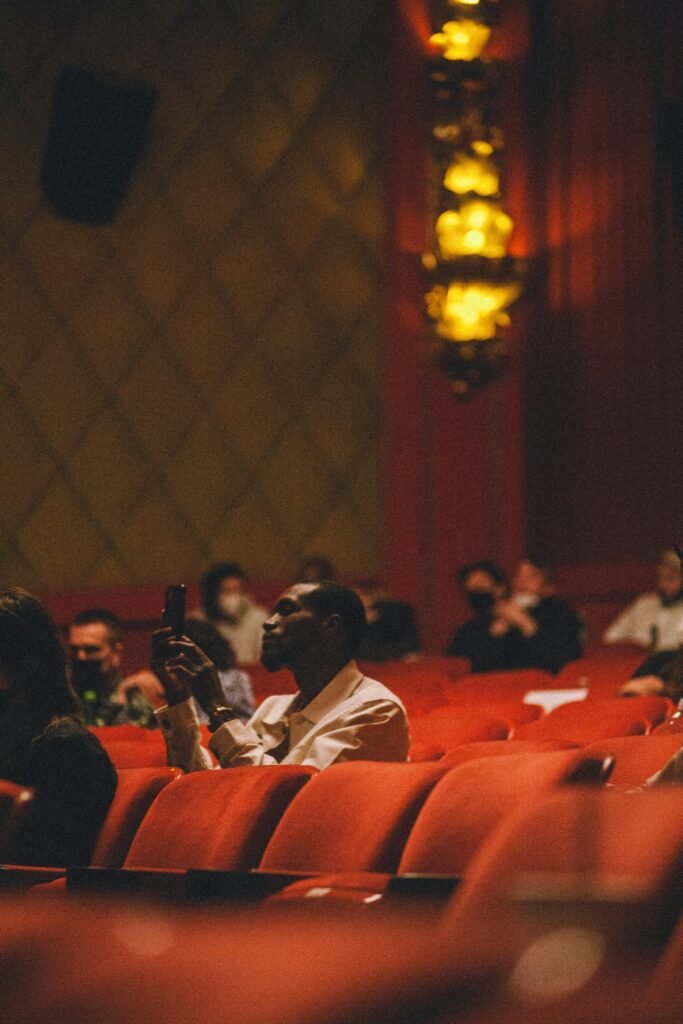
Look at the timeline your viewers live in:
And in between all of that: playlists, memes, awards shows, campaign ads, and glossy biopics about “legends” we now know were monsters to someone.
If you’re under 35, this is your normal. You grew up:
So when the next leak drops and another “icon” is implicated, the shock isn’t that it happened. The shock is how little changes.
This is the psychic landscape your work drops into. People aren’t just asking, “Is this movie good?” They’re asking, often subconsciously: “Does this filmmaker understand the world I’m actually living in, or are they still selling me the old fantasy?”
You may not want the job, but you have it: you’re a translator in a time when language itself feels rigged.
Politicians put out statements. Corporations put out statements. Studios put out statements. The public has learned to hear those as legal strategies, not moral positions.
You, on the other hand, still have this small window of trust. Not blind trust—your audience is too skeptical for that—but curious trust. They’ll give you 90 minutes, maybe a season, to see if you can make sense of what they’re feeling:
If your work dodges that, it doesn’t just feel “light.” It feels dishonest.
That doesn’t mean every film has to be a trafficking exposé. It means even your “small” stories are now taking place in a world where institutions have failed in ways we can’t unsee. If you pretend otherwise, the audience can feel the lie in the walls.
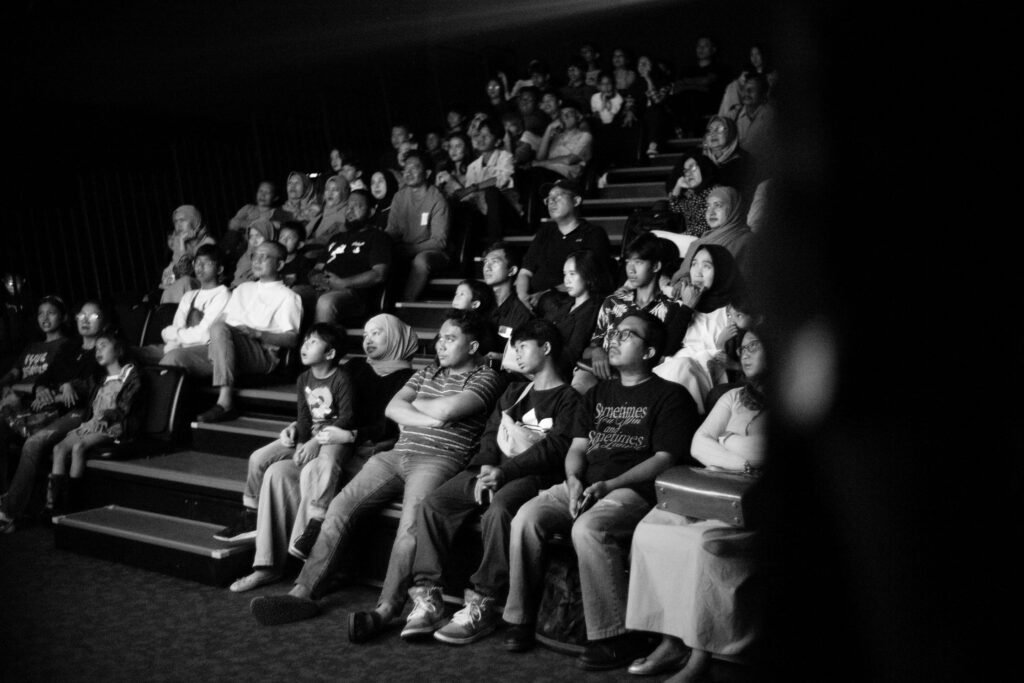
You asked for something that could inspire movement and change. To do that, you have to understand the enemy that’s closest to home:
It’s not only the billionaire on the jet. It’s numbness.
Numbness is what happens when your nervous system has been hit with too much horror and too little justice. It looks like apathy, but it’s not. It’s self‑defense. It says:
When you entertain without acknowledging this, you help people stay comfortably numb. When you only horrify without hope, you push them deeper into it.
Your job is more dangerous and more sacred than that. Your job is to take numbness seriously—and then pierce it.
How?
Movement doesn’t start because everyone suddenly believes they can win. It starts because enough people decide they’d rather lose fighting than win asleep.
Show that decision.
If you make work that brushes against Epstein‑type themes, avoid the easiest trap: turning it into a “one bad guy” tale.
The real horror isn’t one predator. It’s how many people, institutions, and incentives it takes to keep a predator powerful.
If you want your work to fuel real change:
When you map the mechanism, you give people a way to see where they fit in that machine. You also help them imagine where it can be broken.
In a moment like this, neutrality is a story choice—and the audience knows it.
Ask yourself, project by project:
You don’t have to sermonize. But you do have to choose. If your work shrugs and says, “That’s just how it is,” don’t be surprised when it lands like anesthetic instead of ignition.
Ignition doesn’t require a happy ending. It just requires a crack—a moment where someone unexpected refuses to play along. A survivor who won’t recant. A worker who refuses the payout. A friend who believes the kid the first time.
Those tiny acts are how movements start in real life. Put them on screen like they matter, because they do.
A lot of people in your position are still quietly waiting—for a greenlight, for a grant, for a “better time,” for the industry to decide it’s ready for harsher truths.
Here’s the harshest truth of all: the system you’re waiting on is the same one your audience doesn’t trust.
So maybe the movement doesn’t start with the perfectly packaged, studio‑approved, four‑quadrant expose. Maybe it starts with:
If you do your job right, people will leave your work not just “informed,” but uncomfortable with their own passivity—and with a clearer sense of where their own leverage actually lives.
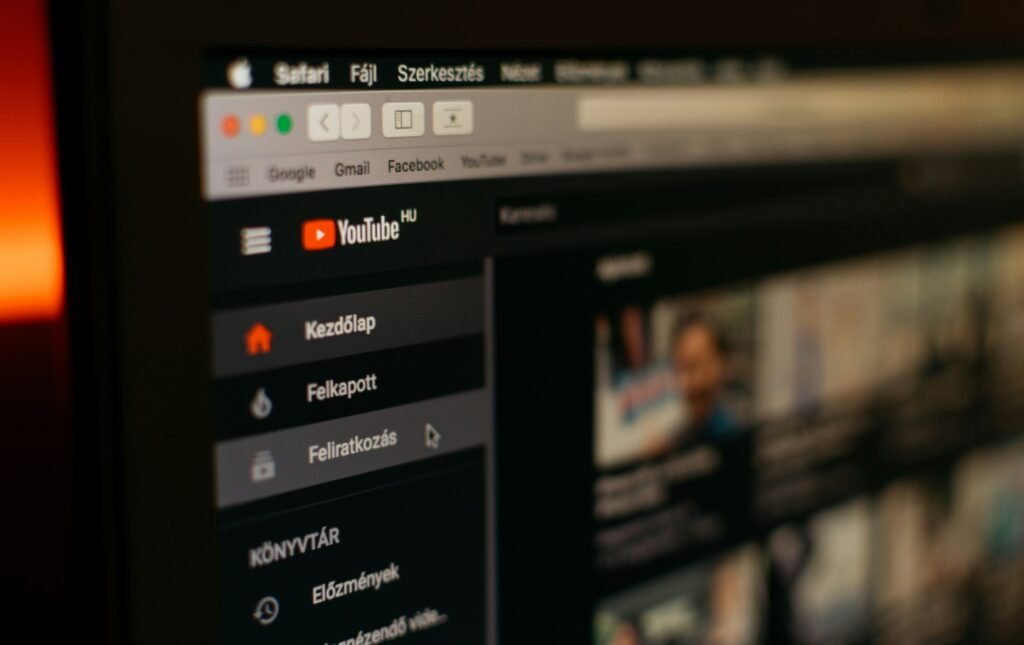
You are not going to single‑handedly dismantle trafficking, corruption, or elite impunity with one film. That’s not your job.
Your job is to help people:
If your film makes one survivor feel seen instead of crazy, that’s movement.
If it makes one young viewer question why they still worship a predator, that’s movement.
If it makes one industry person think twice before staying silent, that’s movement.
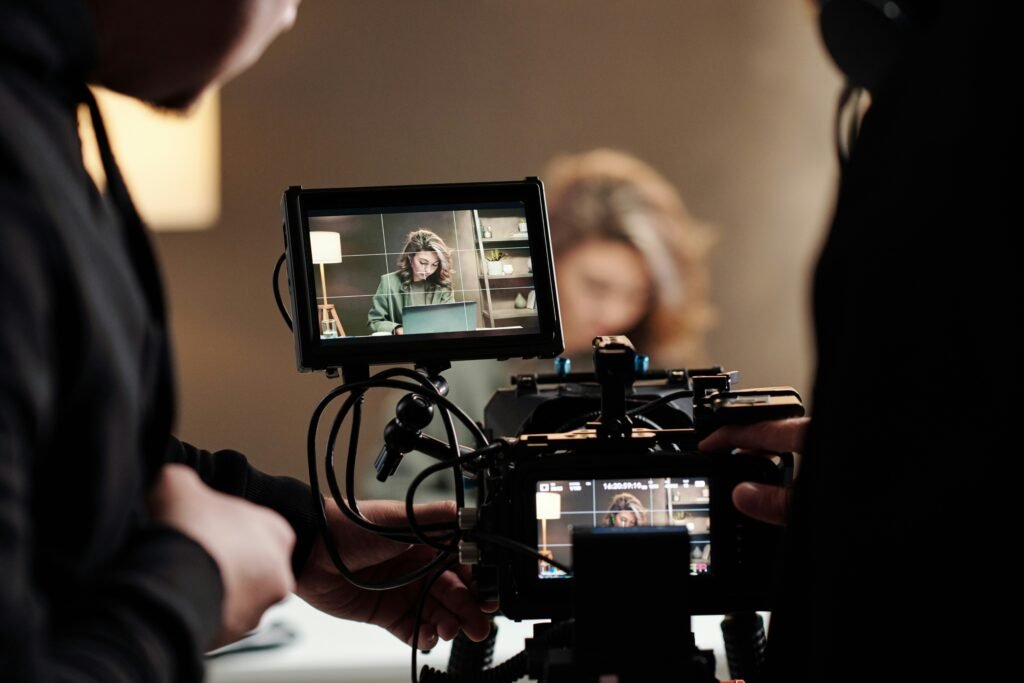
And movements, despite what the history montages pretend, are not made of big moments. They’re made of a million small, private decisions to stop lying—to others, and to ourselves.
You wanted to make movies, not decode Epstein.
Too late.
You’re here. The curtain’s already been pulled back. Use your camera to decide what we look at now: more distraction from what we know, or a clearer view of it.
One of those choices helps people forget.
The other might just help them remember who they are—and what they refuse to tolerate—long enough to do something about it.

February 9, 2026 — Ghislaine Maxwell tried to bargain with Congress from a prison video call.
Maxwell, the woman convicted of helping Jeffrey Epstein traffic underage girls, appeared virtually before the House Oversight Committee today and refused to answer a single question. She invoked her Fifth Amendment right against self‑incrimination on every substantive topic, including Epstein’s network, his associates, and any powerful figures who moved through his orbit.
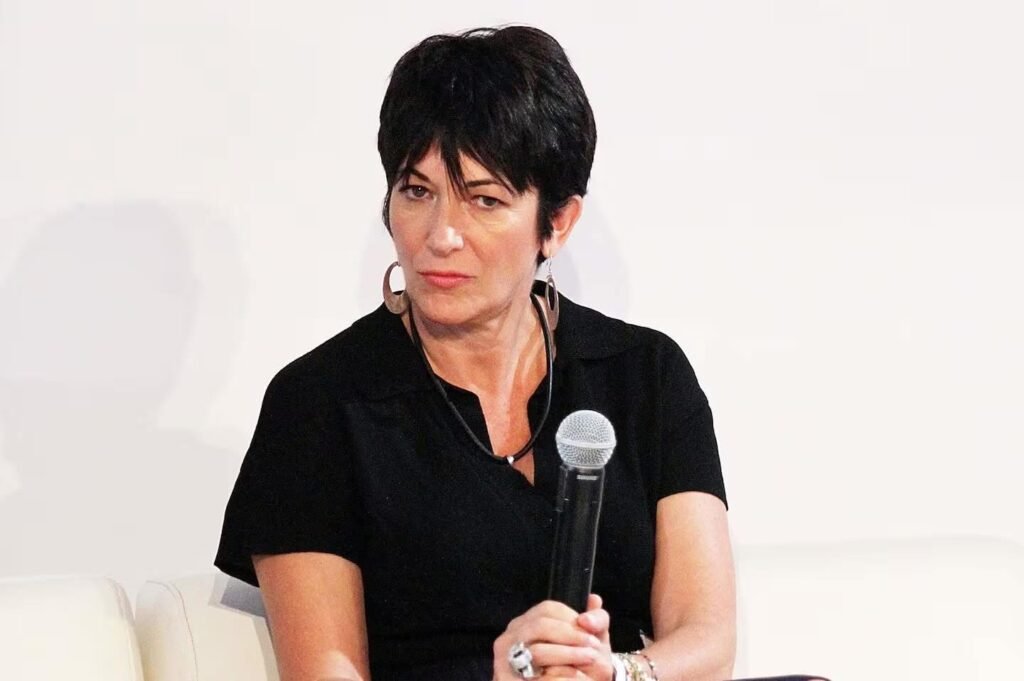
Maxwell is serving a 20‑year federal sentence at a prison camp in Texas after being found guilty in 2021 of sex‑trafficking, conspiracy, and related charges. Her trial exposed a pattern of recruiting and grooming minors for Epstein’s abuse, and her conviction has been upheld on appeal. Despite that legal reality, her appearance today was less about accountability and more about negotiation.
Her lawyer, David Markus, told lawmakers that Maxwell would be willing to “speak fully and honestly” about Epstein and his world — but only if President Donald Trump grants her clemency or a pardon. Markus also claimed she could clear both Trump and Bill Clinton of wrongdoing related to Epstein, a statement critics immediately dismissed as a political play rather than a genuine bid for truth.
Republican Chair James Comer has already said he does not support clemency for Maxwell, and several Democrats accused her of trying to leverage her potential knowledge of powerful people as a way to escape prison. To many survivors’ advocates, the spectacle reinforced the sense that the system is more sympathetic to the powerful than to the victims.
At the same time, Congress is now reviewing roughly 3.5 million pages of Epstein‑related documents that the Justice Department has made available under tight restrictions. Lawmakers must view them on secure computers at the DOJ, with no phones allowed and no copies permitted. Early reports suggest that at least six male individuals, including one high‑ranking foreign official, had their names and images redacted without clear legal justification.
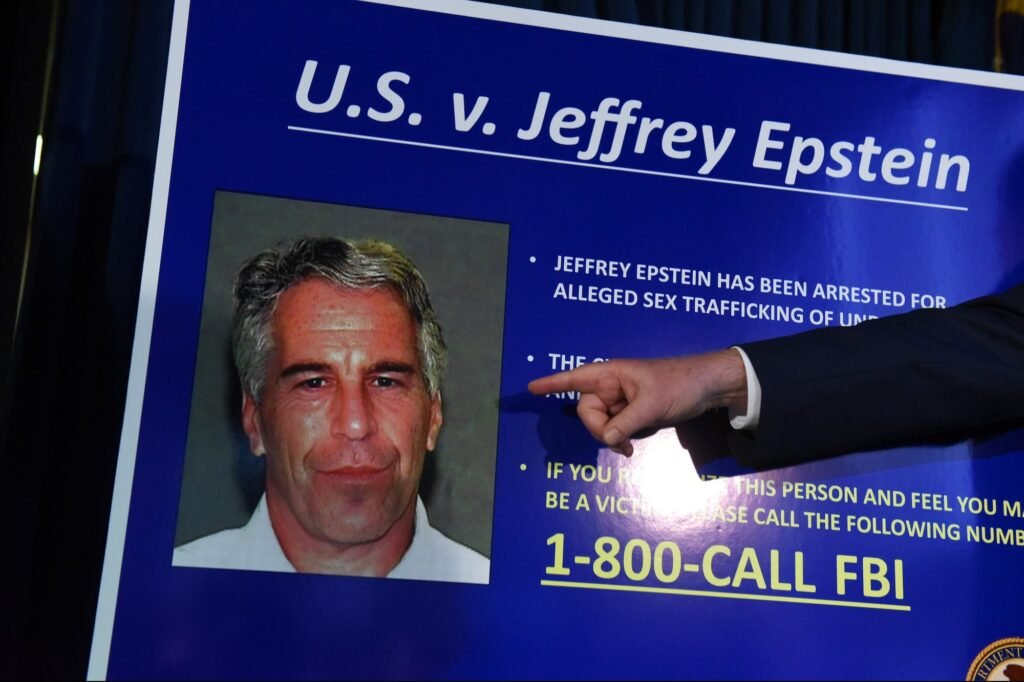
Those unredacted files are supposed to answer questions about who knew what, and when. The problem is that Maxwell is signaling she may never answer any of them — unless she is set free. As of February 9, 2026, the story is still this: a convicted trafficker is using her silence as leverage, Congress is sifting through a wall of redacted files, and the public is still waiting to see who really stood behind Epstein’s power.


What the Epstein Files Actually Say About Jay-Z


Turning One Short Film into 12 Months of Content


10 Ways Filmmakers Are Building Careers Without Waiting for Distributors


AI Didn’t Steal Your Job. It Revealed Who Actually Does the Work.


What Epstein’s Guest Lists Mean for Working Filmmakers: Who Do You Stand Next To?


How to Write a Logline That Makes Programmers Hit Play


Catherine O’Hara: The Comedy Genius Who Taught Us That Character Is Everything


You wanted to make movies, not decode Epstein. Too late.